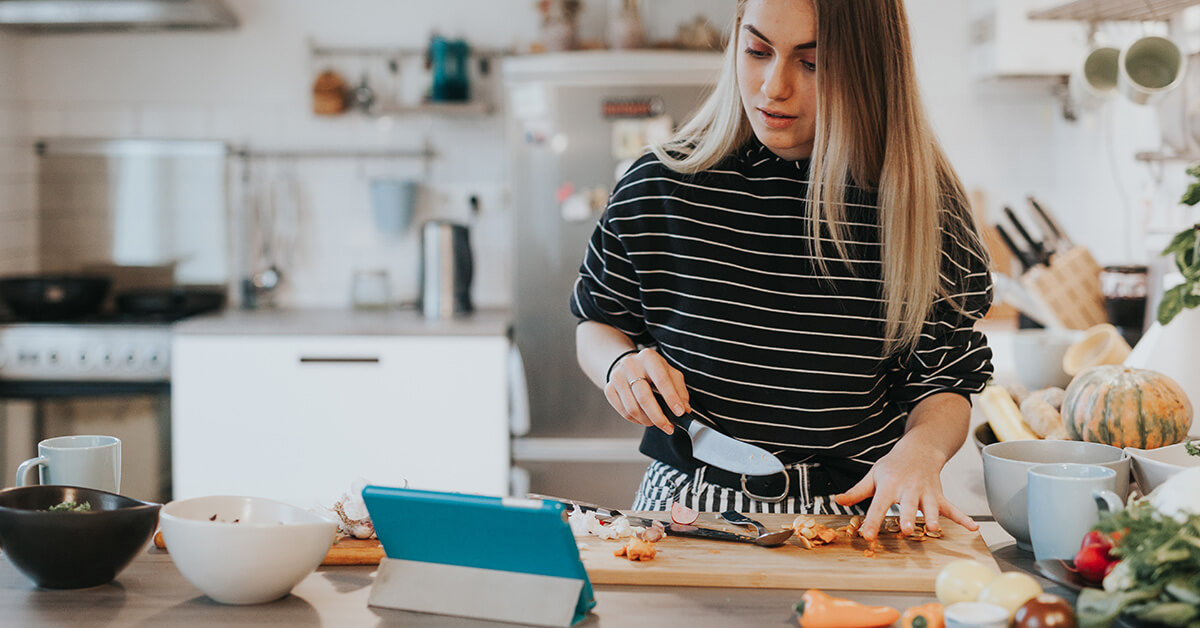
How to save money without going without
Running a house, supporting a family and the general demands of everyday life—let’s be honest, many aspects of life can be expensive. Throw in the economic uncertainty and job redundancies caused by Covid-19 and it’s becoming increasingly clear that we’re living in challenging times. As a result, more of us are now wondering how to save money.
But how can we make the most out of our finances without going without? Here are 5 ways to save money without drastically affecting the quality of your lifestyle.
Be a conscious consumer
Many of us that are wondering how to save money often assume that buying the cheapest products is the way forward. But more often than not, it’s not the best way to do it. Many cheaper items are often poorly made and aren’t built to last, requiring you to purchase replacement products further down the line. (Which, let’s be honest, kind of defeats the point.)
Instead, abandon the bargain mindset and do your research. If you’re buying online, shop around and read the reviews. Is the item you’re buying decent quality? Will you be able to reuse it? And more importantly, do you really need it? One of the best ways to stop yourself spending impulsively is to try the 48-hour trick. If you’ve spotted something you’d like to buy, make a mental note and don’t dive in. If, after the two days have passed, you’ve either forgotten about the item or realised it’s probably an unnecessary purchase, you have your answer. And you’ll have saved money.
Recycle and upcycle
We live in the age of consumerism. And believe it or not, we’re programmed to want to buy new things. But more often than not, we don’t actually need what we want. Think about it. How many times have you purchased a replacement for something that didn’t need replacing? How many times have you been satisfied with X (car, kitchen, shoes, dog collar—you name it) only to instantly want a new one after spotting your neighbour with the latest version? Don’t succumb to high-pressure advertising or compare yourself with your fellow man or woman. Instead, look at what you’ve already got and try to make the most of it.
By forcing yourself to be a little creative, you can instantly transform certain bits and pieces. For example, take those battered dining chairs you so desperately want to replace. Can you repaint or upholster them? How about that ‘tatty’ living room rug that you’re eager to throw out. If it’s saveable (be honest), why not get it professionally cleaned? When you think outside the box, there are many ways to refresh things without breaking the bank.
Review your direct debits and subscriptions
How many times have you checked your online banking and shuddered at the sight of a direct debit for something that you don’t need or use? Well, we’re certainly guilty. Often it’s easier just to shut down the app and hope you remember to cancel it before you’re charged again next month. But let’s be honest, we often forget to do this. That’s why it’s important to get on top of your monthly direct debits and subscriptions sooner rather than later.
If you’re paying for something like a gym membership that you hardly use, reassess whether you need it or not. Be realistic with yourself: will you ever truly get your money’s worth? Or can you join a cheaper gym until you get into the swing of an exercise routine or better yet, take up running? What about that audiobook subscription you signed up for in January 2016 and have hardly used? Unsubscribe and delete the app. It’s incredible how quickly these things can add up. Be mindful of what you do and don’t need and tailor your outgoings accordingly.
Make a shopping list and stick to it
We’re harking back to an old-school tip here, but planning your meals is truly one of the best ways to save money and reduce waste. Astonishingly, the average UK family throws away £700 worth of uneaten food a year. Across the board, this adds up to 4.5m tonnes of food worth £14bn. Hardly small fry, huh.
Instead, get into the habit of planning your meals ahead and buy only the ingredients you need. And if you find yourself buying food that you won’t realistically eat before its use-by date, freeze it. From milk and cheese to meat, fruit and vegetables, many foods are suitable for the freezer. Better yet, try out batch cooking. If you’re cooking for just you and your partner, why not up the portions and freeze any leftovers? Then, not only will you reduce waste, you’ll be stretching out your cooking efforts, saving yourself time and money in the process.
Reinvent your Saturday night out
Even when you’re trying hard to save money, it’s still important to enjoy yourself (in a Covid-secure way, of course). So, consider rethinking your usual Saturday night plans. If you and a friend are used to getting together at the weekend, take it in turns to host each other at home instead. Call off the pricey restaurant and post-dinner pub session and crack open a bottle of wine at home with a takeaway.
Or if you’re still intent on getting out of the house (we get you), keep a lookout for venues offering discounts or the option to bring your own bottle. The night can be as pricey or as cheap as you want it to be. Sometimes all it takes is a little forward-planning.
Popular articles
Invite friends to TransferGo, earn £20







